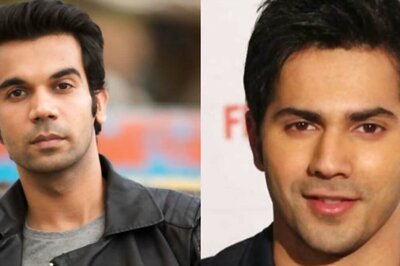
views
Venezuela’s strongman President Nicolas Maduro ordered the nation’s state-owned companies to immediately begin exploring and exploiting the oil, gas and mines in Guyana’s Essequibo region. The directive came a day after Venezuelan President Maduro held a referendum to reclaim the 61,600-square-mile (159,500-square-kilometre) territory which accounts for two-thirds of Guyana and also borders Brazil and is almost the size of Greece.
Guyana is also home to more than 200,000-250,000 Hindus, making it the only nation in the Western Hemisphere with a sizable Hindu population, according to Pew Research Centre and Encyclopedia.com. Close to 37% of Essequibo’s population, as per data from 2012, follow Hinduism. Reports by Guyana-based Stabroek News and Newsroom Guyana showed the community holding yagnas, community events and functions during religious festivals and Essequibo’s Hindu community also won several awards at the annual Diwali motorcade contest held this year in Guyana’s capital Georgetown.
How Venezuela’s bid to take over the area will impact the Hindus living in the region remains unclear as the South American nation itself is suffering from sanctions and accusations of political subjugation of its autocratic President Maduro’s opponents.
Guyanese Hindus are also struggling to retain their traditions alive in the face of many challenges, according to a blog post by the Hindu American Foundation.
Guyanese Hindus are descendants of Indians in both north and south India who were taken to the South American nation as labourers in plantations during the colonial period following the abolition of the Slavery Abolition Act of 1833.
Why Venezuela Wants Essequibo
Following the referendum held in the Venezuelan capital of Caracas earlier this weekend, Maduro ordered creation of local subsidiaries of Venezuelan public companies, including oil giant PDVSA and mining conglomerate Corporación Venezolana de Guayana. He asked these companies “to grant operating licences for the exploration and exploitation of oil, gas and mines in the entire area of our Essequibo”.
The strongman leader threw his entire weight behind the referendum and has set his eyes on the area after ExxonMobil discovered oil in commercial quantities in 2015.
The referendum, however, failed to garner much public support, according to reports by the Associated Press, even though Maduro claimed that he had the backing of 10.5 million voters.
José Luis Cova, 45, who lives near two voting centres in Caracas, the capital, said polling stations were empty. “Everything they said is a lie because I passed by several centres and everything was always empty. I don’t know where they got that number of people who supposedly voted for Essequibo,” Cova was quoted as saying by the news agency.
Guyana, for its part, said it would remain “vigilant.” Guyana has denounced the referendum as pretext to annex the land and has asked the International Court of Justice (ICJ) to intervene after Maduro said he plans to “build an airstrip to serve as a logistical support point for the integral development of the Essequibo”.
The ICJ ordered Venezuela not to take any action that would alter Guyana’s control over a disputed territory but also did not bar it from holding the ‘sham’ referendum.
“We have to always remain vigilant. Of course, our monitoring must be always at a high level. President Maduro, while we don’t believe he will order an invasion… can do something that can be very unpredictable,” Foreign Minister Hugh Todd told AFP.
Venezuela has for decades laid claim to Essequibo, which is home to 125,000 of Guyana’s 800,000 citizens. Litigation is pending before the International Court of Justice (ICJ) in The Hague over where the borders should lie, according to a report by news agency AFP.
Guyana, a former British and Dutch colony, insists the frontiers were determined by an arbitration panel in 1899. But Venezuela — which does not recognize the ICJ’s jurisdiction in the matter — claims the Essequibo River to the region’s east forms a natural border and had historically been recognized as such, the news agency further said in its report.


















Comments
0 comment